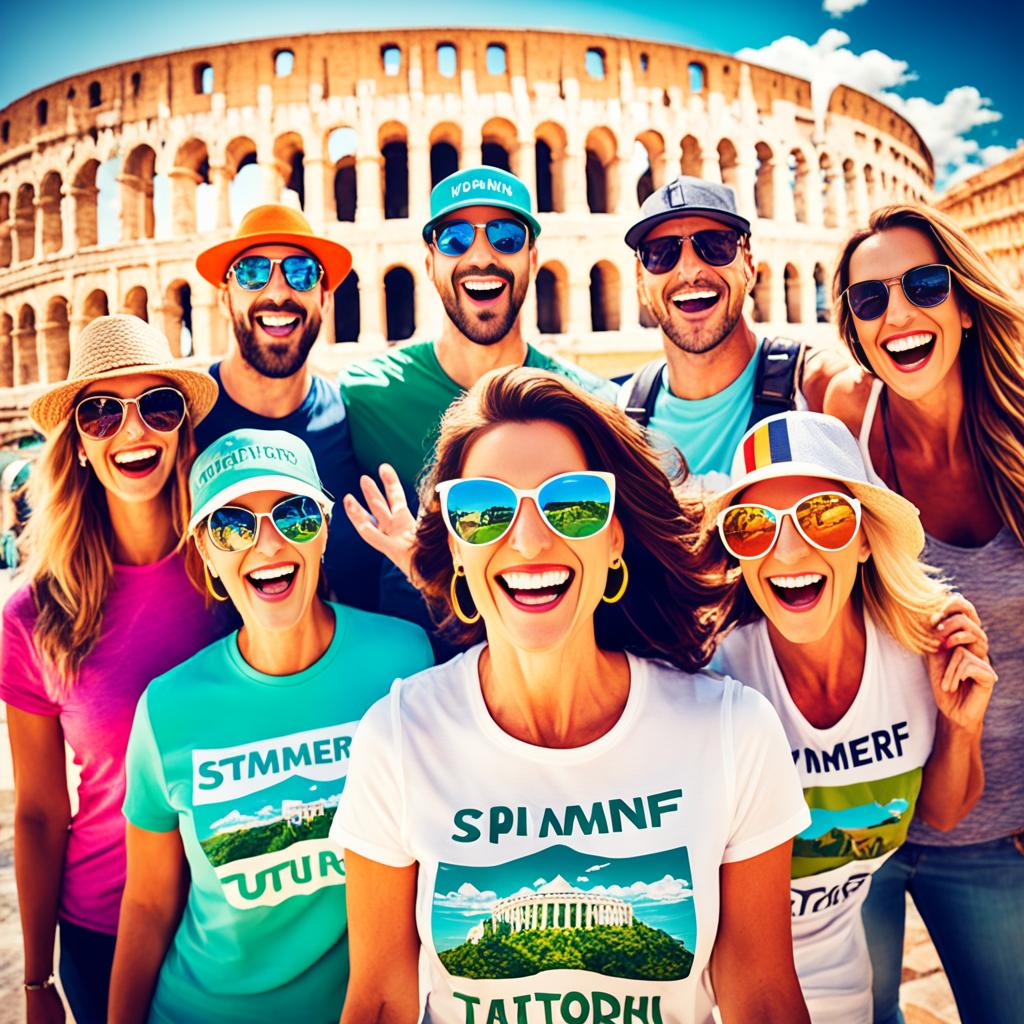Have you ever wondered what SMERF actually means in the travel and tourism industry? If you’re unfamiliar with this acronym, don’t worry—you’re not alone. But understanding the meaning of SMERF is crucial for anyone involved in niche market strategies in the tourism sector.
SMERF is an acronym that refers to the five small group meeting market segments: Social, Military, Education, Religious, and Fraternal. Each of these segments plays a significant role in shaping travel trends and influencing the strategies of destination marketing organizations (DMOs).
So, why are SMERF groups important? Well, these groups are often targeted by DMOs because they provide valuable occupancy opportunities during low-occupancy days and shoulder seasons. But what motivates SMERF groups to choose a particular destination?
One key factor is cost. SMERF groups, in general, seek affordability and added value. They are often on a tight budget and are looking for destinations that can offer them the best bang for their buck. Additionally, SMERF groups represent a diverse range of gatherings, such as weddings, professional organizations, educational conferences, religious meetings, and fraternal gatherings.
Each segment within the SMERF acronym has its own preferences, benefits, and challenges. But they all have the potential to contribute significantly to a destination’s tourism numbers. To fully tap into this lucrative market, destinations need to understand the unique characteristics of each SMERF segment and tailor their offerings accordingly.
In the following sections of this article, we will delve deeper into each of the five SMERF market segments—Social, Military, Education, Religious, and Fraternal. Join us as we explore the opportunities and strategies for attracting these groups and discover how they can positively impact your destination’s tourism industry.
The Social Market – Celebrating and Connecting

The S in SMERF stands for Social, which encompasses various groups such as weddings, charity events, small interest groups, and holiday celebrations. Social groups often bring a significant number of attendees and host multiple gatherings, including receptions, ceremonies, and banquets. Weddings, in particular, present a significant opportunity for destinations, as they generate room nights and attract both out-of-town and in-town guests.
To reach the social market, Destination Marketing Organizations (DMOs) can utilize mobile-friendly websites and create specific landing pages for wedding planning. Bridal shows also provide an excellent opportunity to connect with potential SMERF planners and stakeholders.
- Weddings – A lucrative segment of the social market, weddings attract couples and guests, generating room nights and bringing significant economic value to destinations.
- Charity Events – These events combine social engagement and giving back to the community, appealing to individuals with a desire to make a positive impact.
- Small Interest Groups – From book clubs to hobby enthusiasts, small interest groups gather to share common passions and foster connections.
- Holiday Celebrations – Festive gatherings during holidays provide opportunities for people to come together and celebrate, creating memorable experiences in destinations.
- Leisure Travelers – People seeking leisurely experiences and relaxation form a vital part of the social market, contributing to the tourism industry’s growth.
Military Meetings – Collaboration and Strategy

The M in SMERF represents military meetings, where military personnel come together to collaborate, strategize, and discuss important matters. These events involve disciplined individuals who discuss tactics and share experiences. Military meetings can take various forms, including conferences and training sessions.
DMOs can target this segment by working with local professional organizations that coordinate out-of-town meetings for their groups. By emphasizing the benefits of hosting military meetings in a destination, such as providing efficient planning and offering opportunities for attendees’ families to explore and spend in the area, DMOs can attract and retain this market.
Benefits of Hosting Military Meetings in a Destination
- Opportunity for collaboration: Military meetings provide a platform for military personnel to collaborate, exchange ideas, and develop strategies.
- Enhanced strategy development: By bringing together individuals from different military branches and units, these meetings allow for the exchange of varied perspectives, leading to more comprehensive and effective strategies.
- Knowledge sharing and professional development: Military meetings offer the chance for individuals to share experiences, best practices, and lessons learned, contributing to the growth and development of the military community.
- Networking opportunities: These events create networking opportunities for military personnel, facilitating connections and relationships that can have long-term benefits.
- Boost to the local economy: Hosting military meetings brings visitors and their families to the destination, stimulating local businesses and contributing to the economy.
By recognizing the value of military meetings and tailoring services and amenities to meet the specific needs of this segment, destinations can establish themselves as go-to choices for military conferences and events.
Educational Meetings – Knowledge and Growth

The E in SMERF stands for educational meetings, which focus on expanding knowledge, sharing insights, and fostering intellectual growth. These meetings include conferences, workshops, and seminars that provide professionals with opportunities to exchange ideas and learn new skills.
Educational meetings play a crucial role in personal and professional development, offering a platform for individuals to stay updated with the latest industry trends, acquire new knowledge, and network with like-minded professionals. Whether it’s a scientific conference, a management workshop, or a technical seminar, these educational events contribute to the intellectual growth of participants and the advancement of industries.
Destinations that cater to educational meetings can capitalize on this lucrative market by offering specialized services and amenities that meet the specific needs of these groups. By understanding the requirements of educational conference organizers and attendees, destination marketing organizations (DMOs) can position themselves as preferred choices for hosting such events.
Here are some strategies that DMOs can employ to attract educational meetings:
- Provide state-of-the-art meeting facilities and technology infrastructure
- Offer customizable conference packages with diverse catering options
- Collaborate with local academic institutions and subject matter experts to provide relevant content and speakers
- Assist in event planning and provide sample menus to streamline the organizational process
- Organize site visits, allowing organizers to experience the destination firsthand and assess its suitability
By establishing themselves as destinations that prioritize intellectual growth and professional development, DMOs can attract a steady stream of visitors seeking educational meetings. Additionally, hosting educational conferences, workshops, and seminars can contribute to the local economy by driving tourism, filling hotel rooms, and supporting local businesses.
Benefits of Educational Meetings:
| Benefits | Explanation |
|---|---|
| Knowledge acquisition | Educational meetings provide attendees with the opportunity to learn from industry experts, stay updated with the latest trends, and acquire new skills. |
| Networking | Professionals can expand their network by connecting with like-minded individuals, potential collaborators, and mentors. |
| Collaboration and idea exchange | Participants can collaborate with peers, share their experiences, and exchange ideas to foster innovation and problem-solving. |
| Professional development | Educational meetings offer opportunities for attendees to enhance their professional competencies, advance their careers, and gain recognition in their fields. |
| Personal growth | By attending educational meetings, individuals can broaden their horizons, gain new perspectives, and nurture their curiosity. |
Educational meetings form an integral part of the SMERF market, contributing to the growth and advancement of various industries. Their impact extends beyond the duration of the event, creating lasting connections, inspiring innovation, and fostering intellectual development.
Religious and Fraternal Meetings – Faith, Fellowship, and Brotherhood
The R in SMERF represents religious meetings, where individuals of the same faith come together to worship, celebrate, and deepen their spiritual connections. These meetings include church retreats, religious conferences, and pilgrimages. It is a time for members to reconnect with their beliefs, find solace, and strengthen their bond with their religious community.
Fraternal meetings, represented by the F in SMERF, focus on fostering brotherhood and sisterhood among members of organizations such as fraternities, sororities, and social clubs. These gatherings serve as a platform for like-minded individuals to come together, share experiences, and establish lifelong friendships. Fraternal meetings provide a sense of belonging, support, and camaraderie.
To attract and cater to religious and fraternal meetings, destination marketing organizations (DMOs) should prioritize building relationships with local religious institutions and social clubs. Understanding the unique needs and desires of these groups is crucial. DMOs can provide support and guidance to SMERF event planners, who may not have professional event planning experience. By offering specialized services, customizable packages, and personalized attention, destinations can position themselves as preferred choices for religious and fraternal meetings, providing a seamless and enriching experience.
Religious and fraternal meetings play a significant role in fostering faith, fellowship, and brotherhood among their respective communities. By creating an inclusive and welcoming environment, destinations can attract and nurture these meetings, contributing to the personal growth and spiritual well-being of attendees.


